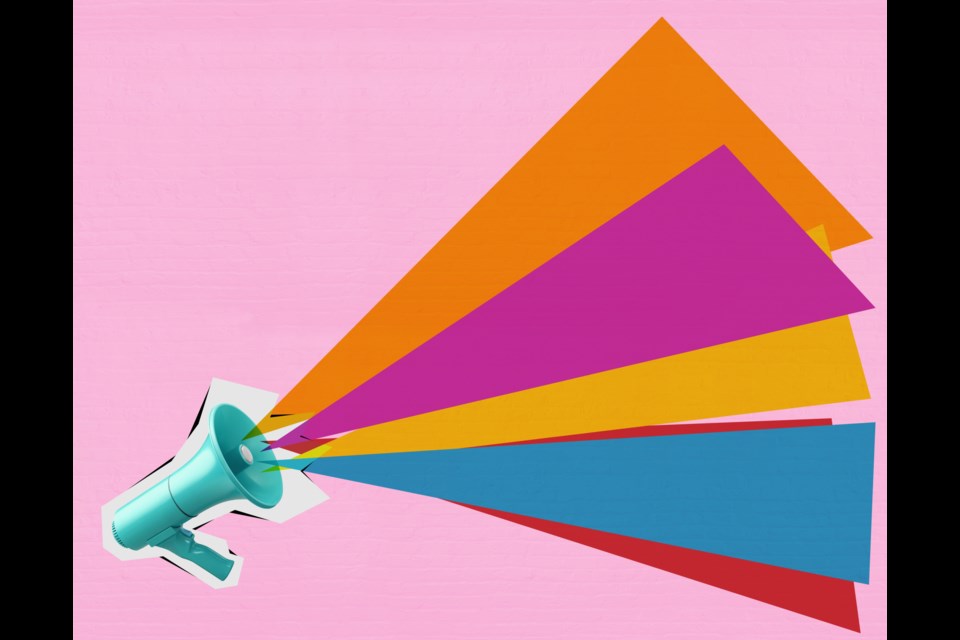FEEDBACK regarding the column about the father who yelled at his wife (Dec. 9):
Reader – “You missed a golden opportunity to call out the glaring obvious.
“This is domestic violence.
“It’s not a fight. It’s not a one off. It’s not OK.
“Screaming obscenities at someone is verbal abuse and child abuse by proxy. The child is a trapped witness with nowhere to go and is obviously very shaken.
“Call it what it is.
“And I’ll bet what the kid witnessed was only the tip of the iceberg because most abusers know how to pretend to be nice around others.
“The mother says her daughter doesn’t want to be friends with the child anymore. That’s what the abusive father wants. Isolation. Please do not turn your back on this child. Invite the child to spend time at your home for reprieve and to build a rapport. If there’s abuse in the home, it is critical for that child to have a lifeline and support. She may just open up to you, and it can be pursued from there. Your daughter doesn’t have to go to their house. Invite the child to yours where she can experience safety and connection.
“The mother of the friend needs to create an absolute safe non-judgmental space. Ask the woman if she needs help. The letter writer needs to make sure that woman knows there is no shame or judgment here or she could just shut down.
“Being an abused woman is the loneliest thing on the planet due to the shame and stigma it carries. On average it takes an abused woman seven times to leave because of the trauma bonding and extreme fear.
“This woman needs a lifeline and an extended hand to grab when she’s drowning. She needs to know there are domestic violence shelters out there that can help her and her child.
“An abused woman or concerned witness can call Assaulted Women’s Helpline 416.863.0511 to learn about supports and options.
“But please Lisi, start labelling and calling out domestic violence when it’s been identified. Glossing over calling it what it is isn’t helping anyone. It needs to be called out. There are far too many of us that have been invalidated enough by our abusers, we don’t need to be invalidated by everyone else.
“Calling it what it is gives abused women a voice, even if it’s just a whisper.”
Lisi — I have included this entire letter because it is so important and heart wrenching. Domestic violence is very scary because it is swept under the rug by both the perpetrator, the victim and society. The reader is correct that we need to help women and their children in this situation.
However, the column from Dec. 9th did not give me the impression that this yelling was a normal occurrence. The letter writer mentioned that the girls had been friends for years, but this was the first time anything like this had happened. And she did not mention the daughter wanting to end the friendship.
I am a wife, mother, sister, daughter, cousin, and a friend. In my life, I have been yelled at, and I have yelled. That’s not abuse. That’s stress, pressure, misunderstanding, immaturity, frustration, etc.
Is the couple in question in a domestic abuse situation? From what I read and interpreted, I don’t think so. But no one knows what happens behind closed doors, so I have to say maybe.
Thank you for your feedback. It is clear that you were on the receiving end once in your life, and you’ve managed to break free.
I hear you. Your abuse was real. You survived.
Dear Lisi: My nephew is suffering and my brother isn’t acknowledging the severity of the issue. I’m very worried because he attends a private school where the pressure is enormous. Not only on academics, but athletics and social too. He’s a great kid, funny, smart, a real all-rounder. But he’s not captain of any team, doesn’t have a girlfriend, and though his grades are high, he’s not a 95+ per cent.
I’ve talked to my brother about his son switching schools, but he categorically refused. How can I help this boy and subsequently my family?
Worried aunt
You are fortunate to have such a close relationship with both your nephew and brother that they aren’t shutting you out. Suicide is the second leading cause of death in Canada’s young adults right now. If you feel your nephew needs help, do everything you can to help him. Get a professional involved immediately. If it’s as bad as you think, time is of the essence.
Ellie Tesher and Lisi Tesher are advice columnists for the Star and based in Toronto. Send your relationship questions via email: [email protected] or [email protected]




